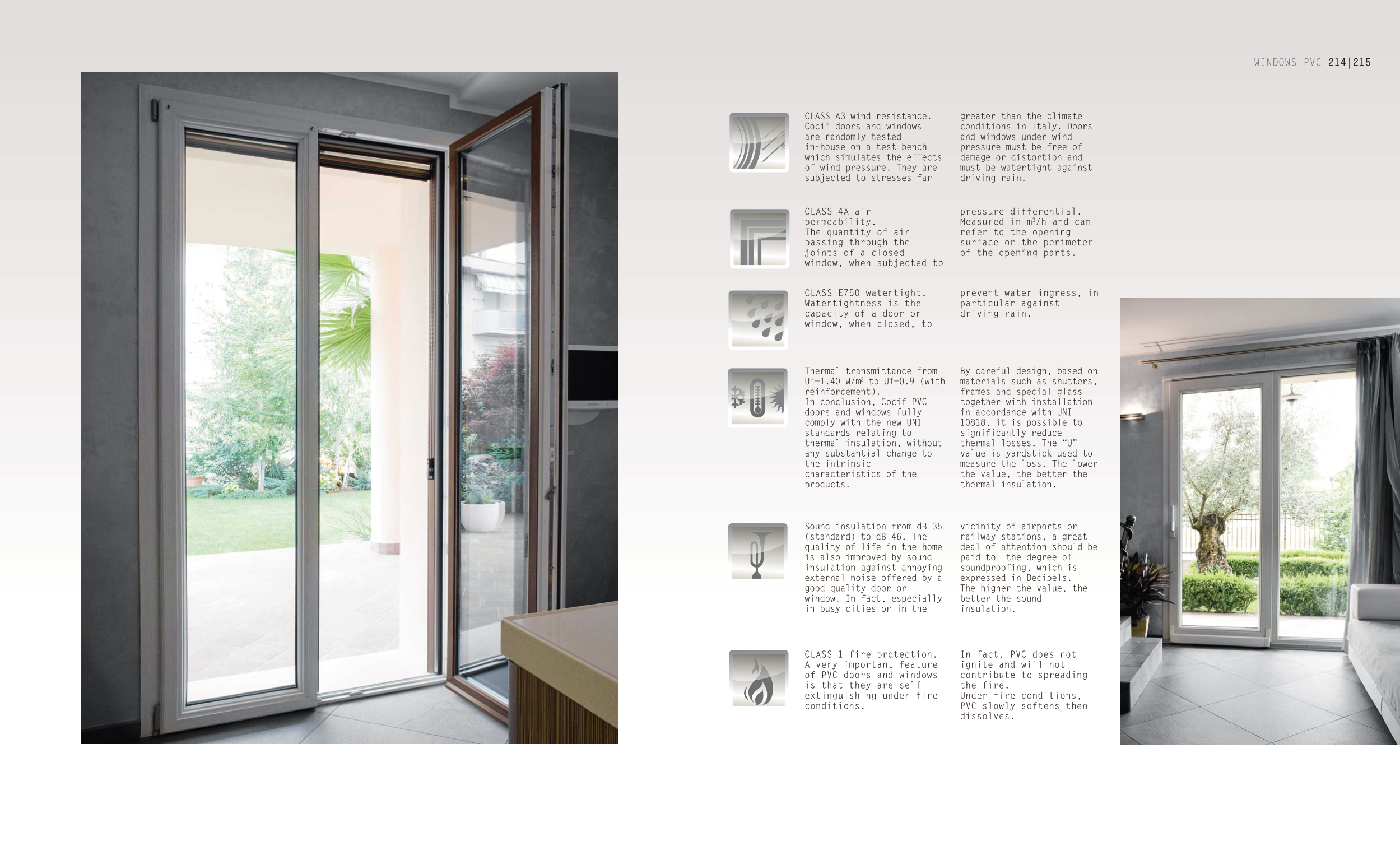WINDOWS PVC 214|215
CLASS A3 wind resistance.
Cocif doors and windows
are randomly tested
in-house on a test bench
which simulates the effects
of wind pressure. They are
subjected to stresses far
greater than the climate
conditions in Italy. Doors
and windows under wind
pressure must be free of
damage or distortion and
must be watertight against
driving rain.
CLASS 4A air
permeability.
The quantity of air
passing through the
joints of a closed
window, when subjected to
pressure differential.
Measured in m3/h and can
refer to the opening
surface or the perimeter
of the opening parts.
CLASS E750 watertight.
Watertightness is the
capacity of a door or
window, when closed, to
prevent water ingress, in
particular against
driving rain.
Thermal transmittance from
Uf=1.40 W/m2 to Uf=0.9 (with
reinforcement).
In conclusion, Cocif PVC
doors and windows fully
comply with the new UNI
standards relating to
thermal insulation, without
any substantial change to
the intrinsic
characteristics of the
products.
By careful design, based on
materials such as shutters,
frames and special glass
together with installation
in accordance with UNI
10818, it is possible to
significantly reduce
thermal losses. The “U”
value is yardstick used to
measure the loss. The lower
the value, the better the
thermal insulation.
Sound insulation from dB 35
(standard) to dB 46. The
quality of life in the home
is also improved by sound
insulation against annoying
external noise offered by a
good quality door or
window. In fact, especially
in busy cities or in the
vicinity of airports or
railway stations, a great
deal of attention should be
paid to the degree of
soundproofing, which is
expressed in Decibels.
The higher the value, the
better the sound
insulation.
CLASS 1 fire protection.
A very important feature
of PVC doors and windows
is that they are self-
extinguishing under fire
conditions.
In fact, PVC does not
ignite and will not
contribute to spreading
the fire.
Under fire conditions,
PVC slowly softens then
dissolves.


